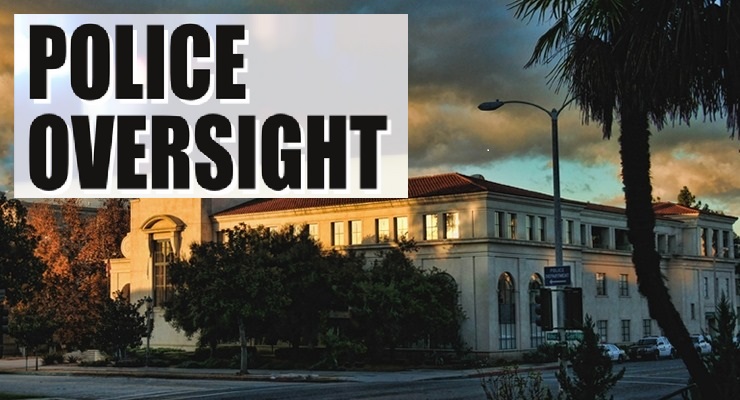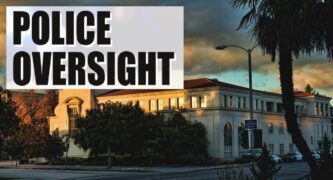
The City’s police oversight commission will provide a recommendation to the City Council on Thursday regarding the police department’s request to purchase a cellular site simulator (CSS) and the related policy.
“The Pasadena Police Department has identified the need to procure a Cellular Site Simulator. This need is in alliance with the department’s contemporary rebranding and our mission of increasing public safety through the use of technology,” according to a slide in Thursday’s agenda.
A Cellular Site Simulator mimics a cell phone tower and tricks nearby mobile phones into connecting to it.
The device uses cellular technology to provide the geo-location of a cellular device.
Police have to get the necessary court order before the technology can be used in order to stay compliant with the Fourth Amendment.
The system does not allow investigators to access, read, and/or listen to any communication, data, text messages, emails, etc. from the target’s cellular communication device.
The City Council deferred a vote on the purchase on Oct. 23 until a state statute can be reviewed.
However when the item first came up last April, it was announced the policy would go before the CPOC. However, that never happened.
A copy of the policy was not contained in the agenda when it was released on Monday and is listed as forthcoming according to that document.
The device would only be used when legally authorized and allowed, and search warrants are required, which a judge has to approve and sign, according to the department.
Once connected, a CSS can intercept and collect data from the phone, including location data and potentially identifying information.
Police use the devices to locate suspects when they already know their phone’s identifying information or to scoop up data on anyone in a specific area.
The device is typically installed in a vehicle. Once the cell phone is tracked to a general location, a handheld device is used to track the cell phone to a specific room or person.
The funding for the cellular site simulator has reportedly been identified through asset forfeiture and not from the City’s General Fund. Asset forfeiture is a legal process by which law enforcement agencies take assets from people involved with crime or illegal activity while ensuring that due process rights of all property owners are protected.
Although activists have expressed concerns about the technology, It only pinpoints the target’s handset, and not any other device.
Over the past several years, local activists have railed against technology that tracks gunshots and automatic license plate readers.
The American Civil Liberties Union called the CSS device “mass surveillance technology” and said it raises “significant concerns about civil liberties and privacy.”
“In recent years, federal, state, and local officials have increasingly used mass surveillance technologies for domestic criminal and immigration enforcement – raising significant constitutional, privacy, and civil liberties concerns,” the American Civil Liberties Union said in a statement in April.
“Specifically, authorities are now using cell site simulators – originally designed for military use –domestically as a way of collecting unique information about mobile devices in a given area, tracking the location of phones, and intercepting the content of certain communications. The Department of Justice, Department of Homeland Security, and more than 50 state and local agencies have purchased these devices.”
The device has been used with success to catch criminals in other places.
In 2015, USA TODAY reported that police in Baltimore and other cities used the phone tracker to apprehend criminals suspected of a wide range of crimes from homicide to petty theft.
There are numerous other similar “success” stories. Police say it can also be used to help locate missing persons.
The commission meets at 6 p.m. in Council Chambers at City Hall, 100 N. Garfield Ave.














 6 comments
6 comments


